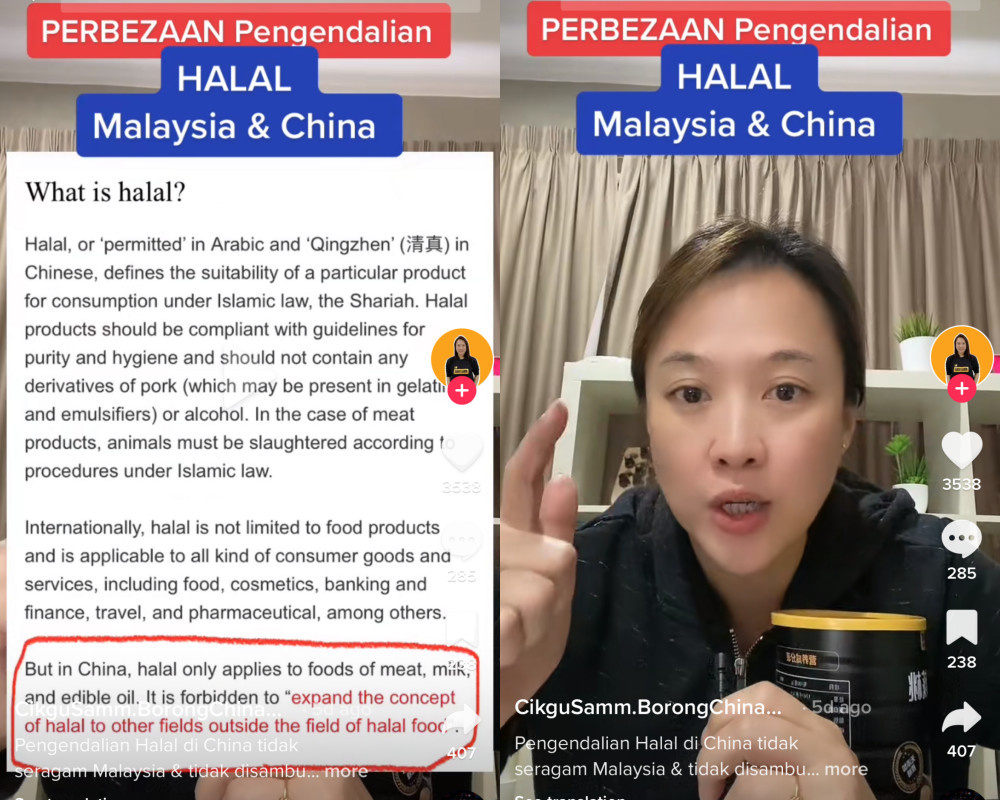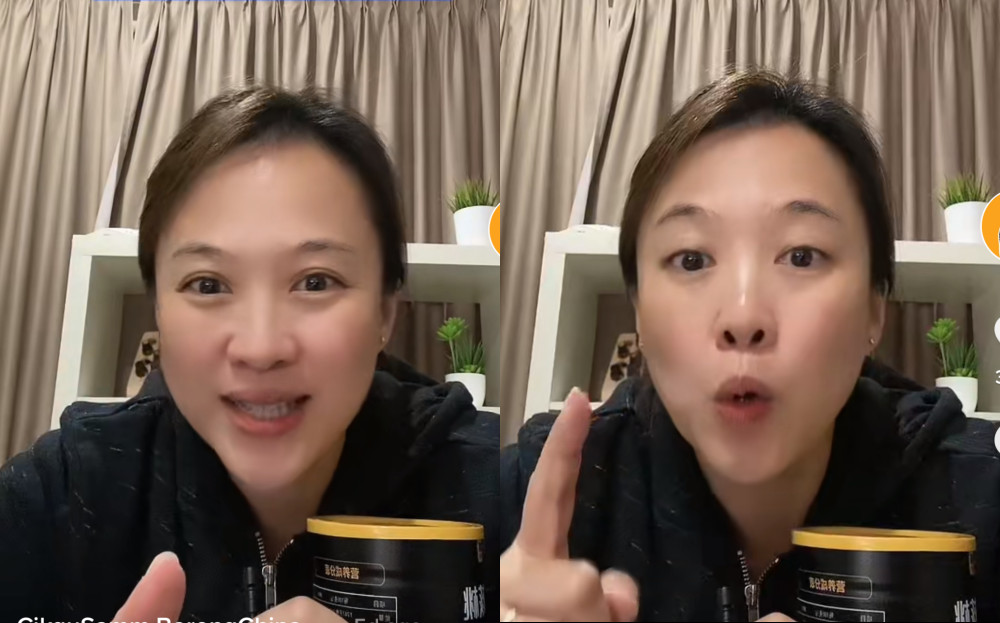Online shopping platforms offer such ease when searching for daily household products. Especially when buying from different countries that offer the same products at much lower prices. Unfortunately many are unaware of the differences in halal statuses in and out of Malaysia.
Just recently, a local non-muslim woman posted several videos on TikTok educating the public about this issue, helping fellow Muslims all around Malaysia.
@cikgusamm Pengendalian Halal di China tidak seragam Malaysia & tidak disambut baik dari kerajaannya. Hargailah standard HALAL Malaysia yang level world class yang dibangga oleh cikgu. Sama- sama mempertahankan isu makanan tanpa halal cert dari China adalah tidak HALAL. #cikgusamm #halal #makananchina #makanandarichina #isuviral #borongchina #borongchinaonline
When buying groceries or food as a Muslim, there are necessary cautions to be aware of. According to Malaysia’s JAKIM (Department of Islamic Development Malaysia), this includes the raw ingredients, the method of preparation, the storing, the handling, and many more processes. All of these determine whether something is considered halal or non-halal.
“Whereas in China, halal is only subject to foods of meat, milk, and edible oil,” she explained, adding that there is no formal organisation in the nation that enforces halal standards among Muslims. She also added that Chinese factories that want to apply for a halal certificate need to refer to local religious affairs.

Noticing some of these issues online, Cikgu Samm ended the video by asking both sellers and buyers to be careful not to make hasty purchase before making sure beforehand. It’s always recommended to read and research the ingredients yourself.
She added that buyers should be more aware of these things because ultimately, they will be the ones who consume them.
Puteri Teja contributed to this article.
Follow us on Instagram, Facebook or Telegram for more updates and breaking news.









